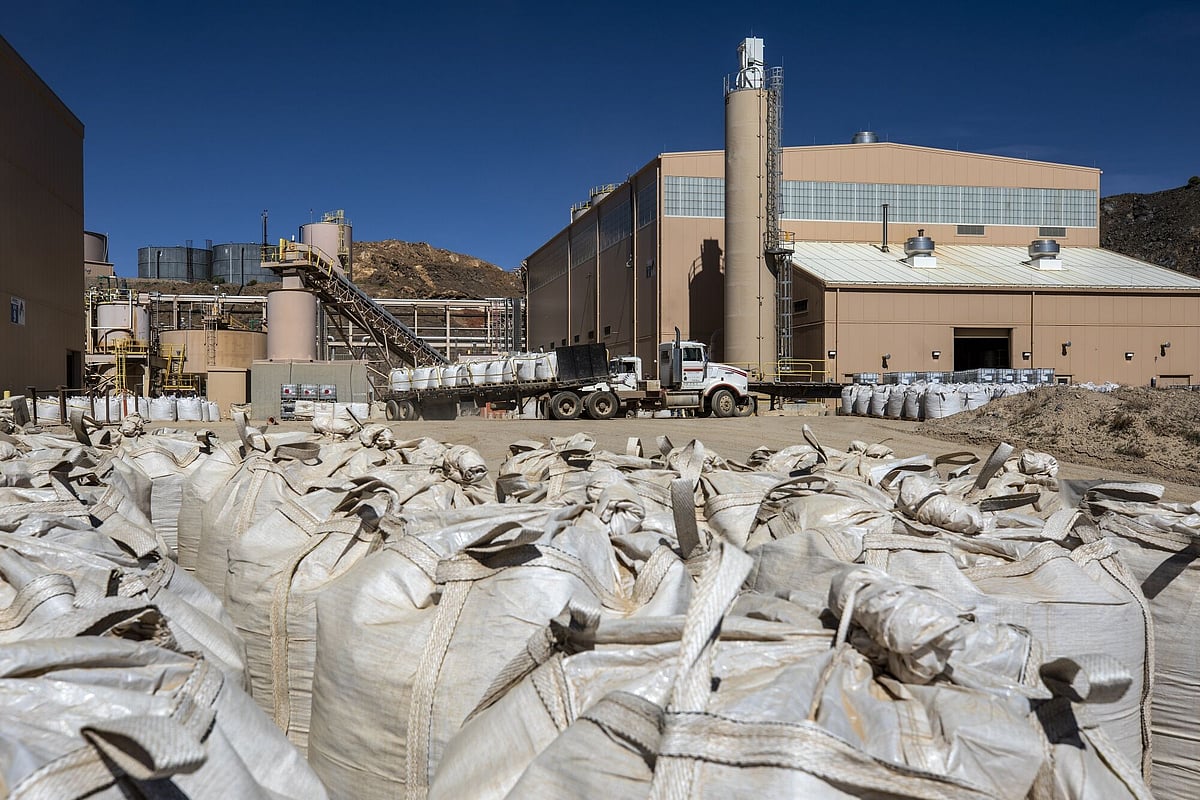Pentagon buys rare earths stake to tackle China’s dominance
US Department of Defence buys into a key American producer to secure magnets supply

The US made its biggest move yet to push back against China’s weaponisation of rare earths, with the Pentagon buying into a key American producer to secure supply of magnets critical for military and other applications.
The Department of Defense agreed a $400 million equity investment in MP Materials Corp., the company that revived a dormant mine in California.
Together with $1 billion in funding from JPMorgan Chase & Co. and Goldman Sachs Group Inc., the commitment will fund a major new plant making rare-earth magnets.
MP’s shares soared as much as 60% in New York, while other rare earths firms also spiked on the prospect of government underwriting for the industry.
Shares up
Australia’s Lynas Rare Earths Ltd., which is building a refinery in Texas, rose as much as 20% — the most in more than five years.
“The scale of the US commitment underscores the strategic importance of rare earth magnets, and directly counters China’s rare earth dominance,” Jefferies LLC analysts wrote in a note.
The US has long been reliant on China for rare earths — something the Asian country used to its advantage in responding to the trade war initiated by President Donald Trump.
China leveraged its dominance of the supply chain to retaliate against American tariffs with export controls, adding impetus to US efforts to build up a domestic alternative.
China produces about 90% of the world’s rare-earth permanent magnets, tiny but powerful products that are used in cars, wind turbines and fighter aircraft.
Ford Motor Co. had to cut output at one of its plants after Beijing’s moves, and the curbs have deepened tensions with the European Union.
MP Materials operates the sole US rare earth mine at Mountain Pass in California, and is already developing a magnets factory. The new funding will support a second magnet manufacturing plant, called the 10X Facility, at a “soon-to-be-chosen” location, the company said in a statement.
New facility
With the purchase of a 15% stake, the Pentagon will become MP’s largest shareholder. The Pentagon also agreed to purchase any of the plant’s neodymium-praseodymium products at a floor price of $110 per kilogram. The new facility is expected to begin commissioning in 2028, the company said, and will boost US magnet output to 10,000 tons a year.
“While critics argue such intervention may distort markets, US policymakers view it as correcting an already distorted system,” Jefferies said. “This framework could become the new baseline for rare earth economics in the West, spurring further investments across the supply chain.”
The direct participation of the Department of Defense, together with the supply arrangements, potentially opens up a new era for rare earths and other critical minerals industries.
“I think its a pretty unprecedented situation and I think that this is obviously a very unique circumstance,” Jim Litinsky, the CEO of MP Materials, said in an interview with Bloomberg Television.
“DoD and the administration realise that we’ve got to look at the supply chain holistically, and hopefully this is a model for future other scenarios where we have strategic industries that we have to return.”
Sign up for the Daily Briefing
Get the latest news and updates straight to your inbox
Network Links
GN StoreDownload our app
© Al Nisr Publishing LLC 2026. All rights reserved.